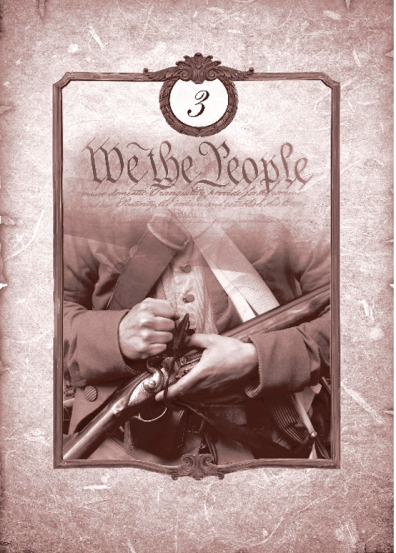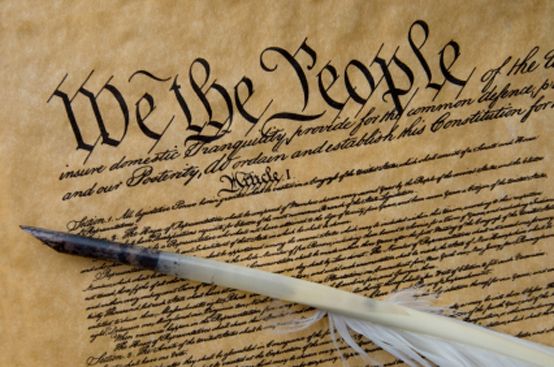Americans are embroiled in emotional arguments for and against gay
marriage. Some embrace the biblical Christian prohibitions against
homosexuality. Others believe that only the personal desires of consenting adults
matter. Through the tug-of-war, three distinct issues emerge: legal, moral, and
historical.
Our American Constitution, based upon biblical principles given to
ancient Israel at the foot of Mt Sinai thousands of years ago, recognizes
inalienable rights given to us by God. This system of Christian law, signed by
our founders as our national contract, identifies right and wrong, as defined
by God—values that remain unchanged through time.
More than a century ago America naively set its collective feet on a
different path to embrace the religion of secular humanism—the belief in man,
which makes his wants and needs central in importance. Secular humanism
embraces civil rights—rights assigned by men and, thus, subject to change by
men. Under secular humanism, what was right a century ago may be wrong today,
while yesterday’s wrong may now be acceptable.
The legal dilemma that faces America today is this: what law do we
uphold? Are we a nation of Christian beliefs and practices, with obedience
rewarded by the Divine Giver? Or have we changed our collective will to favor
the law of secular humanism and its mantra of “civil rights”? Under the former,
we reject homosexual union; under the latter we are condemned to embrace it, as
civil rights, defined by current popularity, assure equality of wants to all
individuals.
Concerning the moral issue, moral law originates with God and He has
repeatedly stated His position on this matter. One such example is Leviticus
18:22: “Thou shalt not lie with mankind, as with womankind”. As God, by His
nature, is unchanging through the ages, that commandment remains in force.
If the moral law is viable, historic and modern evidence will prove its
worth; and, indeed, they do. In all cultures, the public reason for marriage has
been the best interest of the family and the next generation. Indisputably,
children flourish in stable homes with loving parents, male and female, who
provide moral guidance. The natural marriage of a man and a woman has been
universal in every society known to man. Since earliest times, societies have
refused to legalize unions that damage families and children: marriage to the
very young, those closely related, those married to someone else, to
non-humans, and those of the same gender.
Our modenr world, awash in newfound "wisdom", is experimenting with history's proven principles. Do we really believe that gender doesn't matter? Voluminous research shows that the love of fathers and mothers is different: as a rule, fathers give stricter, earned love, while mothers love more gently and unconditionally. Children who receive both kinds of love fare better. It is not in the best interests of society to legalize marriages where children receive a double dose of one kind of love and none of the other.
Will same sex unions affect the stability of our homes? Evidence says they
will. The chaos of no fault divorce has already wreaked havoc on families,
leaving half of all children in America likely to witness their parents’
divorce. Statistically, these children decline in every measure of well-being:
they suffer more physical and emotional problems, run afoul of the law more
often, have more illegitimate children, and do worse in school. Scandinavia’s adoption of gay marriage a decade
ago shows that same gender marriages are far less stable than traditional
marriages. Compared with heterosexual couples, the divorce rate among
homosexual men is 50% higher; among lesbian women 170% higher. Thus, gay
marriage will surely increase our already skyrocketing divorce rates; hardly a
recommendation to welcome same sex unions.
Our declining birth rates
also caution against same sex marriage. A birth rate of 2.1 children per woman
is required to hold a population steady. Birth rates are falling worldwide: 1.4
among Italians, Germans, and Japanese, and 1.7 among Caucasian Americans, with
decline predicted to continue for the next 50 years. At some point, simple math will require us to
become concerned about the survival of our world cultures, including America’s.
Does it then make sense to legitimize marriage unions that are biologically
incapable of sustaining the birth rate?
There are viable
reasons--legal, moral and historical--why same gender marriages have been
prohibited in past cultures. We now contemplate embracing a social experiment that
has been rejected by every known society in recorded history. We must rethink
this issue. The needs of society matter more than the wants of some people. The
divine commandment is still in place, our basic human nature hasn’t changed,
history still repeats itself, and family needs remain the same. Despite social pressures to do otherwise, deliberately
creating fatherless and motherless families is unwise!
Pamela Romney
Openshaw
Author of Promises of the Constitution: Yesterday,
Today, Tomorrow
www.promisesoftheconstitution.com






